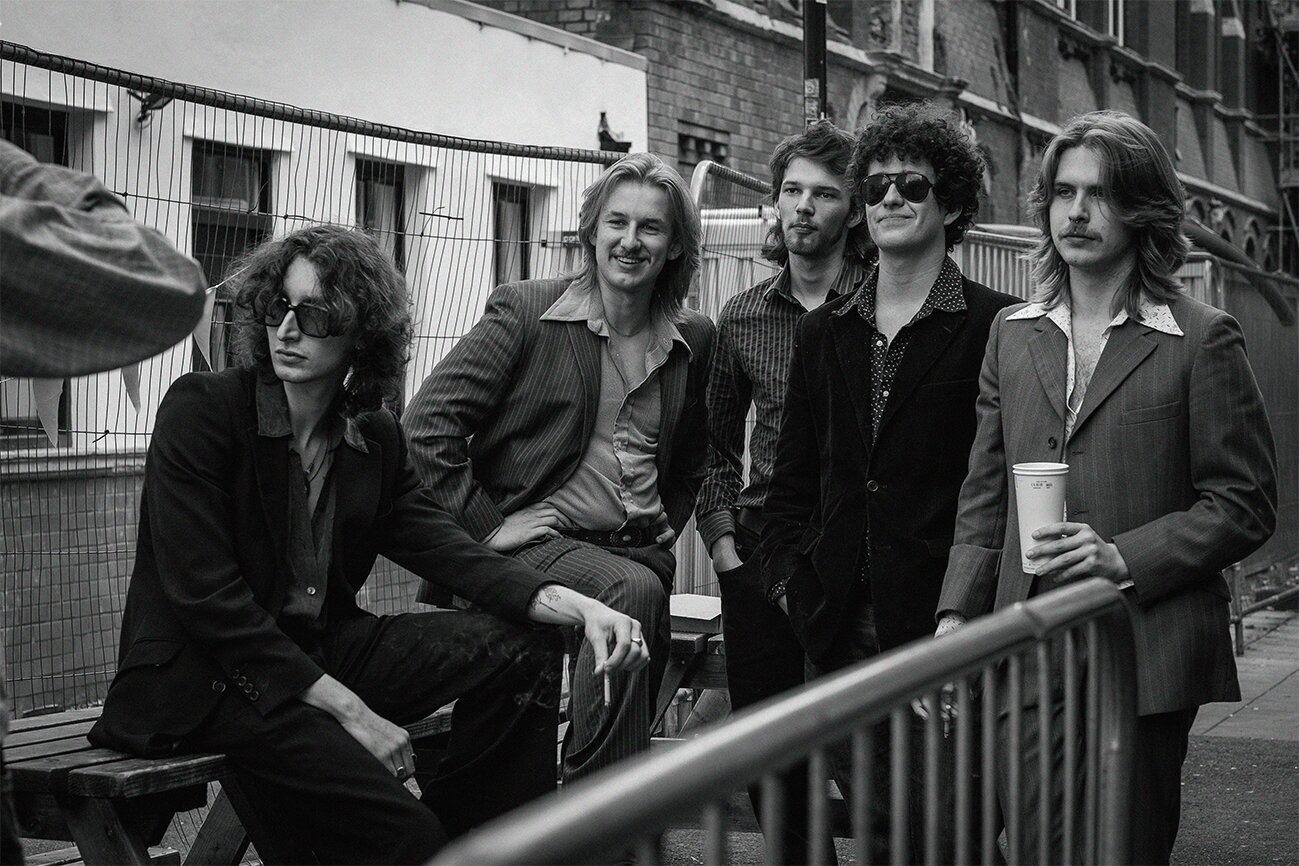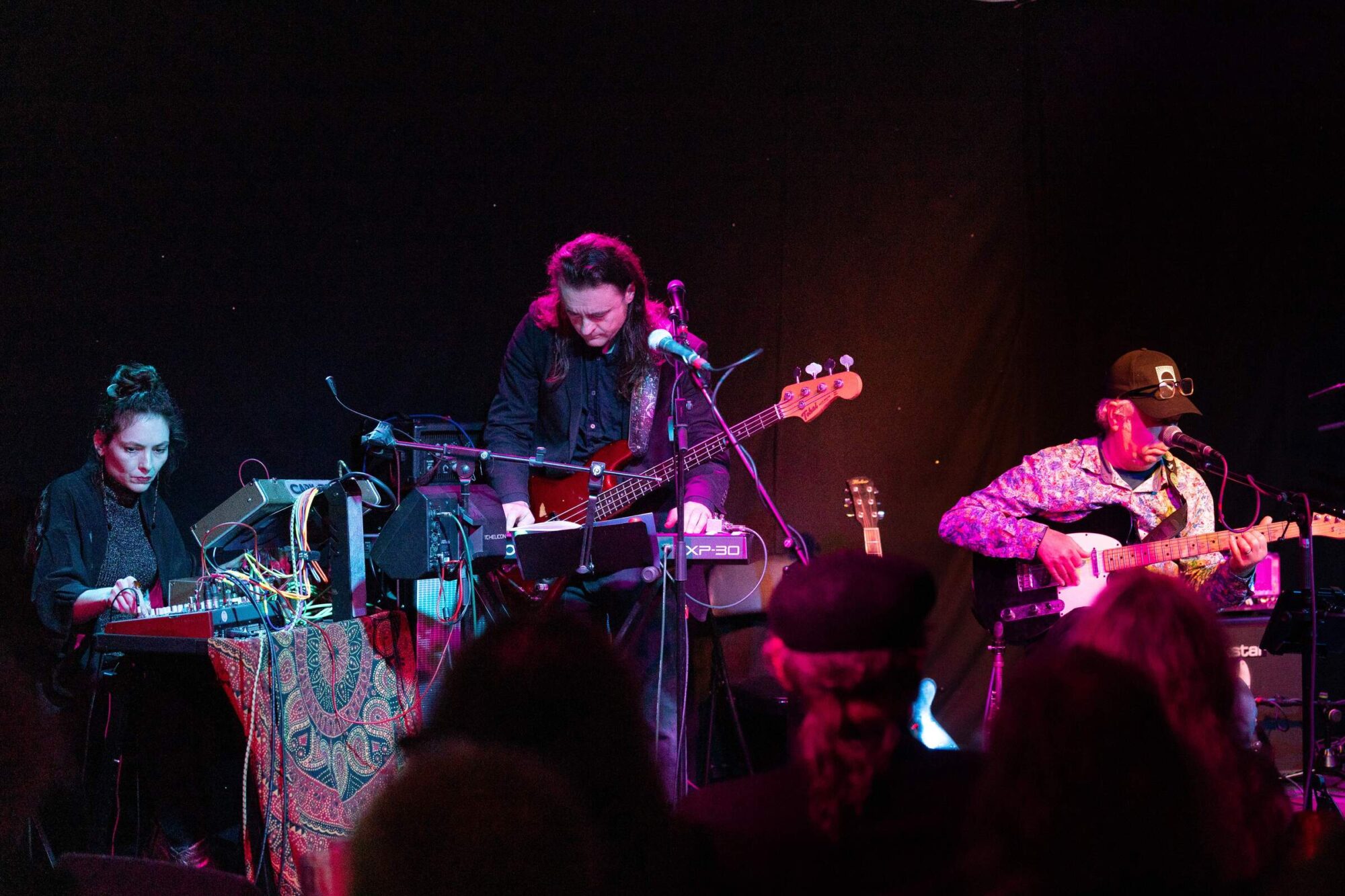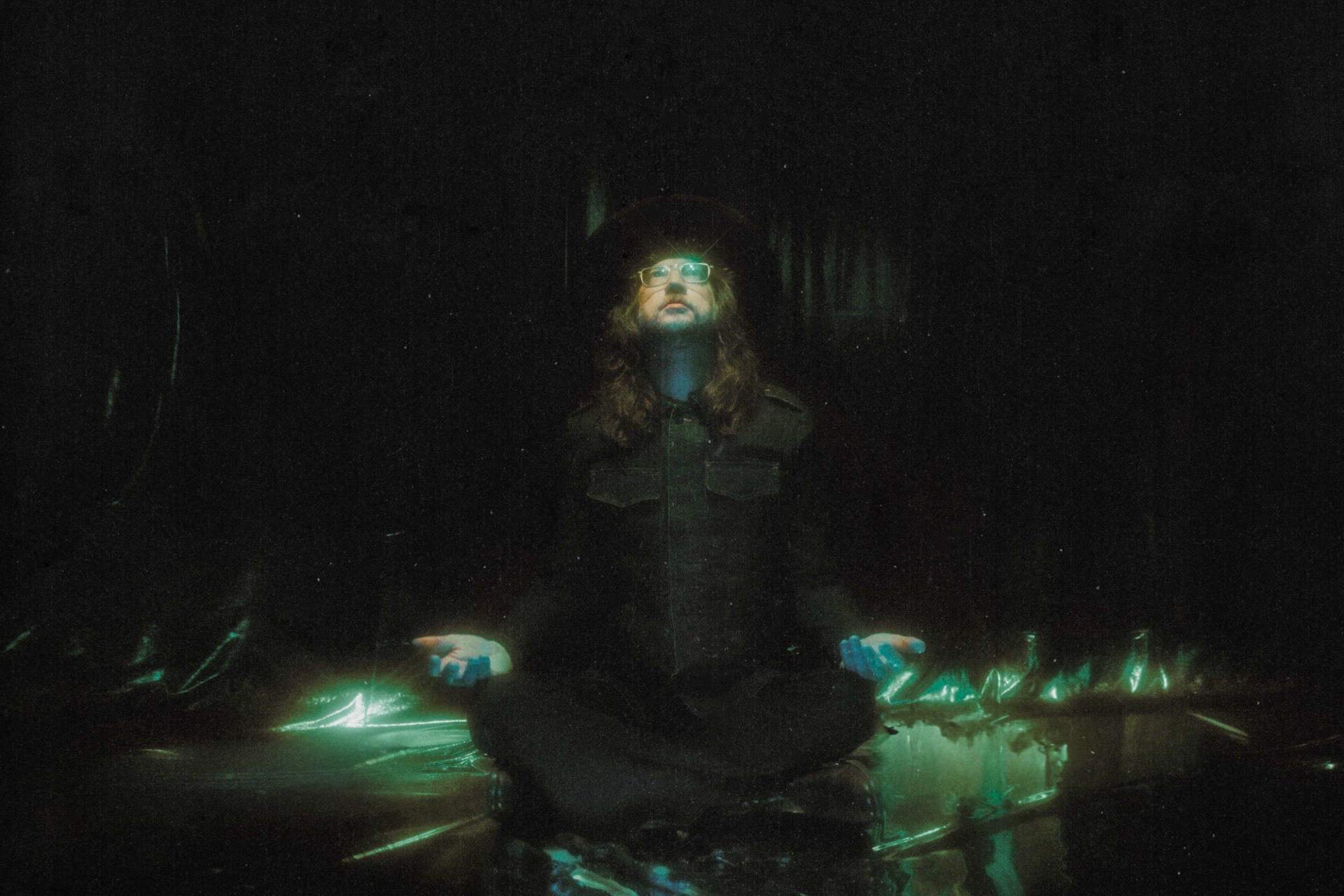Martin Barre on Jethro Tull, the 1989 Grammy Award, and Life in the COVID-19 Era by Jason LeValley
Martin Barre, the guitarist who played in legendary prog-rock band Jethro Tull from 1968 to 2011, would rather be on tour with his band than doing interviews from home. Yet, he was kind enough to sit down with me for a Zoom call to discuss his latest solo release: ’50 Years of Jethro Tull’.
Jason LeValley: Hi Martin!
Martin Barre: Hi Jason.
Good to see you. Thanks so much for taking the time to talk to me today.
Let me get the lighting subdued. (Adjusts lighting)
So you’ve got a new album out. It’s called ‘MLB: 50 Years of Jethro Tull’. I’ve listened to it a couple of times now, both discs, and I would say it’s a guitar lover’s delight–a lot of great guitar playing on there. On the first side is the band and the second side is mostly acoustic, although you threw some bonus tracks on there, some live bonus tracks. When did the album actually come out?
I sold it at gigs in 2019 because we did a 50 year anniversary tour with Dee Palmer, Clive Bunker, and the girls. And this is a sort of special CD only available at the gigs as a sort of little something special, and it was a very limited amount. So they’re gone. And somebody heard about the CD and said, look, we’re going to release it. I went, “Well, OK, but let’s add four bonus tracks–Make it something a bit different.” So, yeah. So essentially it’s been around for a year but in tiny quantities and now it’s obviously available everywhere and slightly expanded.
“Jethro Tull and my band (The Penny Peeps) met in ’68 in a club”
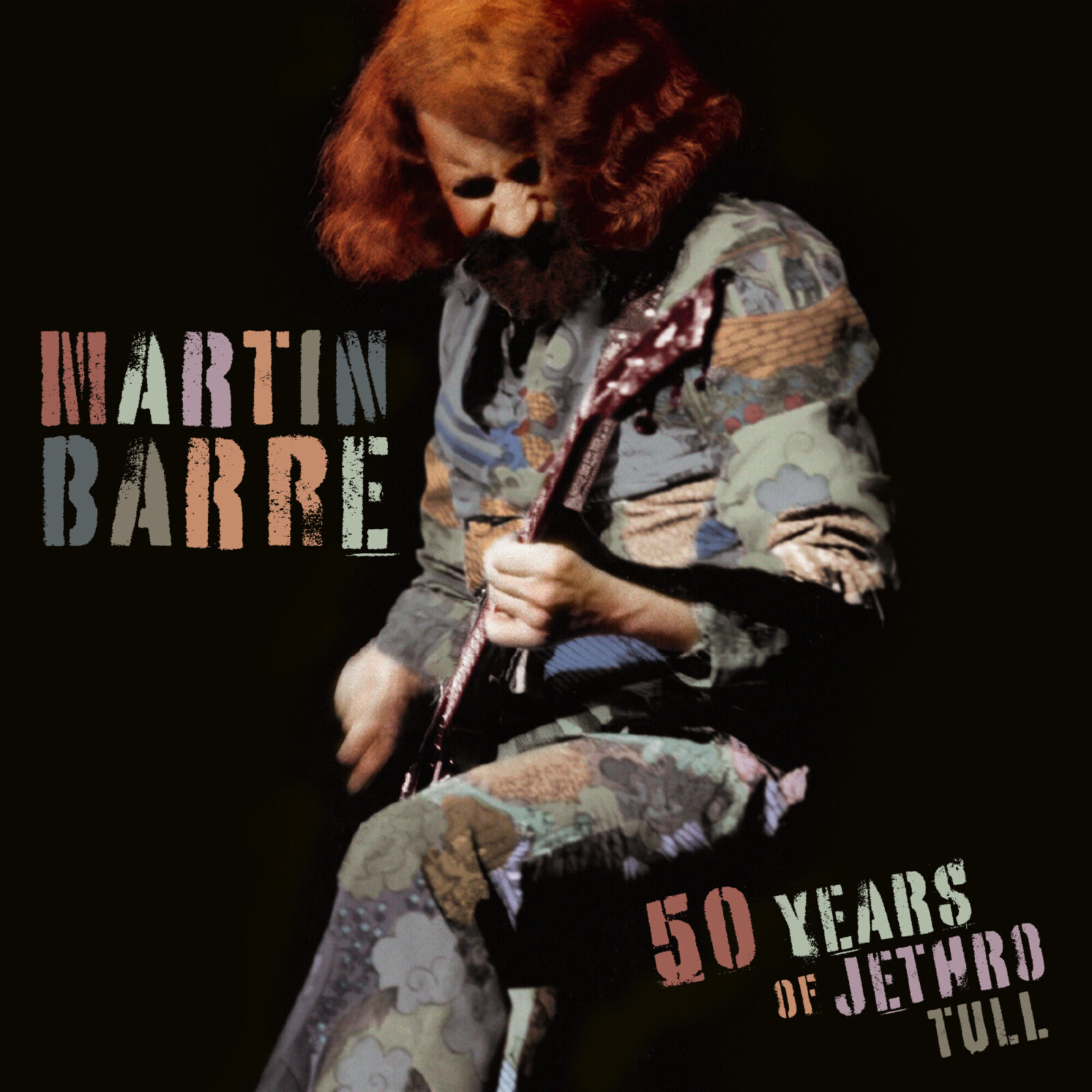
So you joined up with Jethro Tull before the second album came out. Not an original member, but very close. How did that come about?
Well, Jethro Tull and my band (The Penny Peeps) met in ’68 in a club near here where I live near Plymouth in the UK. And we had a lot in common because, you know, me and Mick (Abraham) got on really well. Mick’s a great player. I was a big fan of his playing and then my flute playing and Ian’s flute playing was both in the Roland Kirk style. So we had a lot in common. And then when Mick left the band two or three months later, they remembered me and asked me to audition. I got shortlisted with Tony Iommi and Mick Taylor. They chose Tony at first, but Tony didn’t particularly like the music, so I was next on the list. And here I am.
It worked out well for both of you. I mean, Tony went on to form Black Sabbath.
Yeah, exactly. Yeah. I’m pleased for Tony. He found his niche and did well with it.
Would you be touring right now, do you think, if it wasn’t for COVID-19?
Yeah. Oh yeah. Yeah. We would have been out March, April. I can’t, you know, I got my eraser on the calendar and I went through all the month rubbing out the gigs. I didn’t want to see them and I always wrote them in pencil because you never know what’s going to happen. Gigs get changed. So, yeah, we would have come back from Toronto last week and probably would have something else going on in November. I’m blanking it out because I don’t really want to drive myself crazy with what would have been happening.
What have you been doing to occupy your time then?
Writing a lot of music. I’ve done a lot of writing. I’ve been playing my flute, funnily enough, a lot more than that. I had been some of my music exams coming up. I’m doing music theory just to sort of keep my brain working and I’m playing the flute theory.
What do you mean your “music exams”?
Yeah, you know, the grades? So I’m going back to going through them to get grades exams in the USA, grade one to grade eight? No? It’s a music…it’s for people learning to play an instrument using notation. Grade one is a beginner. Grade eight is like you’re pretty good. So I need to start at grade one. I don’t know how far I’m going to get until I catch up with it myself. I should sort of make it halfway through, but I’m just starting with the book, so I’m learning to, you know, I’m refreshing my memory of music reading. So it’s fun and it’s … And I’m still playing guitar. I’ve got this CD. I’ve got a DVD coming out in two weeks. It’s on the website. So that’s going to be important. I’ve spent a lot of time mixing it and mixing the audio and then the video has been mixed in in the States and it’s good. So it’s… I’m really pleased with it.
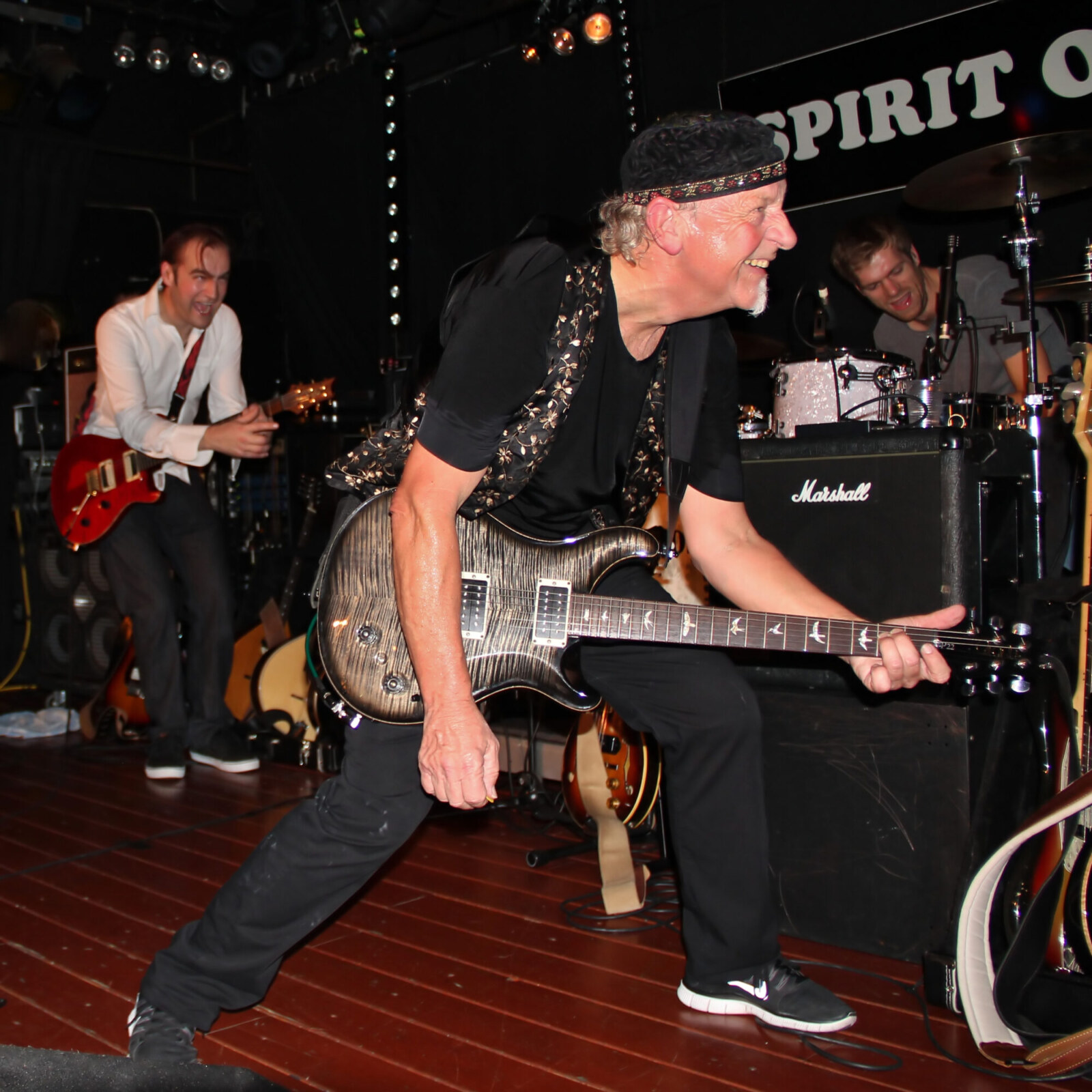
It’s a live video?
It’s live from the Wildey Theatre in Edwardsville (IL, USA) from May the 19th, 2019. And we recorded it. We recorded two nights, luckily, because I had no idea how important that recording is going to be, because obviously we’re going to be playing gigs for six months, another year, nobody knows. So it’s nice that there’s a live DVD out there that when people really get fed up, they can watch the show on the computer.
Cool. You mentioned that you you play the flute. Did that have anything to do with you getting asked to join Jethro Tull or do you ever play it?
Not really. No. It was my introduction because me and Ian were the only two guys in the UK playing blues flute. Really, you know, Roland Kirk-style flute. And so so we met and they remembered me from that meeting. So it was the back door opened because of my flute playing. They remembered my guitar playing as well.
And I was just saying that it’s very unusual to have two flautists in the same rock band.
Yeah, well, when I joined, we both played, but we had a flute battle on stage, and so we I think it became apparent that we only needed one flute player. (Laughs) It wasn’t me.
One of the things I noticed on the new release is that there isn’t any flute playing, at least I don’t remember. And it’s kind of nice to hear all those Jethro Tull songs without the flute. You hear the lyrics better.
I’m sorry I have to correct you there because I play flute on ‘Under Wraps’ at the very end of it. It’s quite a bit of distortion on it. So it sounds a bit edgy. It sounds a bit like a keyboard, but it’s a flute. Yeah, I play flute when I do solo albums, I usually play flute on at least one track just for the hell of it.
Well, I’ll have to listen to it again and check that out.
It’s at the very end.
Do you ever do any singing?
Any…?
Any singing?
Oh, singing. I have done it. But it wasn’t successful. Yeah. Sang on one of the solo albums I did. But, you know, I could sing in tune but that’s not enough. You know, you’ve got to have a great tone. And I think, you know, if you sing all the time, maybe in five years from when you… Unless you just have a natural voice, you’ve got to learn how to get a good tone. And I didn’t have five years patience, so I gave up.
So on the disc there, you have a guitar player that sings with you, and then there was a female voice on the acoustic disc. Who is that?
Two girls, Becca Langsford and Alex Hall. And they do our backing vocals. But when we do gigs –live gigs– and acoustic section, they do at the live show as well. So they just sort of transferred that performance to the studio recording.
Well, you have in your band now you’ve got Clyde Bunker and Dee Palmer, both of whom played with Jethro Tull. However, Dee was known as David then. I wondered if… What kind of… Did that take any kind of adjustment?
You mean in a physical way? In a surgery?
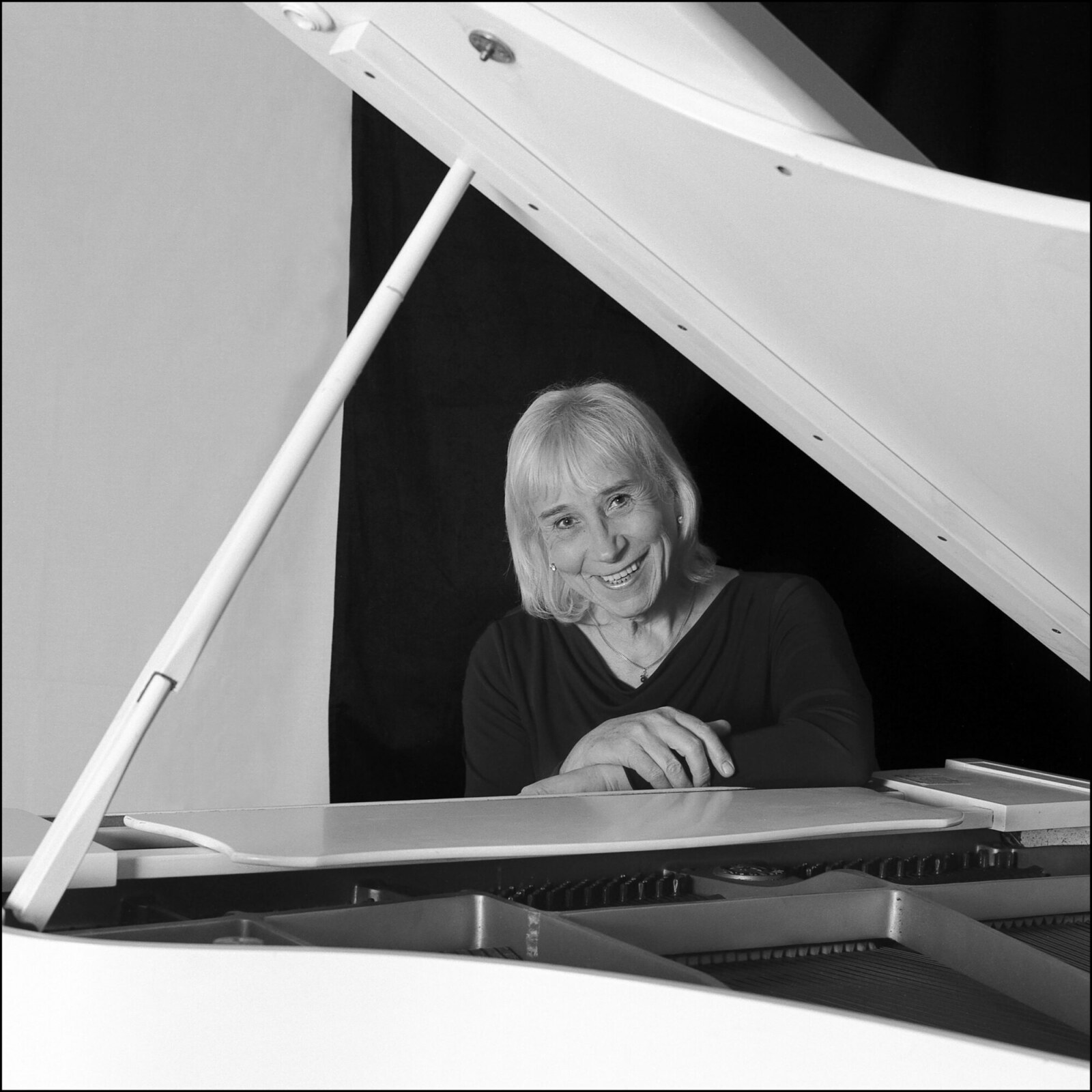
Well, no, no, no, no, I’m not. I’m just asking about your experience. Not…
Well, yeah. I mean, I’m making a joke. It’s not funny. Yeah. Dee became a woman and essentially Dee always was a woman. But like so many… Some of them are tragic cases where, you know, it’s a woman inside a man’s body and they get married and they have children. They go through the whole process. But deep down they’re a woman. And Dee got liberated and she’s a woman and she’s a lovely person and happy and still fun to be around. Of course, I mean in most ways, she hasn’t changed. You know, she’s… a person is a person. And I, you know, whatever she wants to be, I’m happy for her. Yeah, but it’s one version of the band. So we’re a four piece band: The Martin Barre Band. It’s me, Dan Crisp on vocals, Alan Simpson on Bass, Darby Todd on drums. Then we added a keyboard: Adam Wakeman, who’s Rick Wakeman’s son, started doing gigs with us. And then we have the eight piece band, which is the four of us with Dee and Clive and the two girls. So we have all these sort of computations. And then we went to Australia with the four-piece. We went to South America with Dee and Adam. So two two keyboards. And it’s all just variations on the theme. And all the bands sound great in their own way. So it’s quite nice to have that choice.
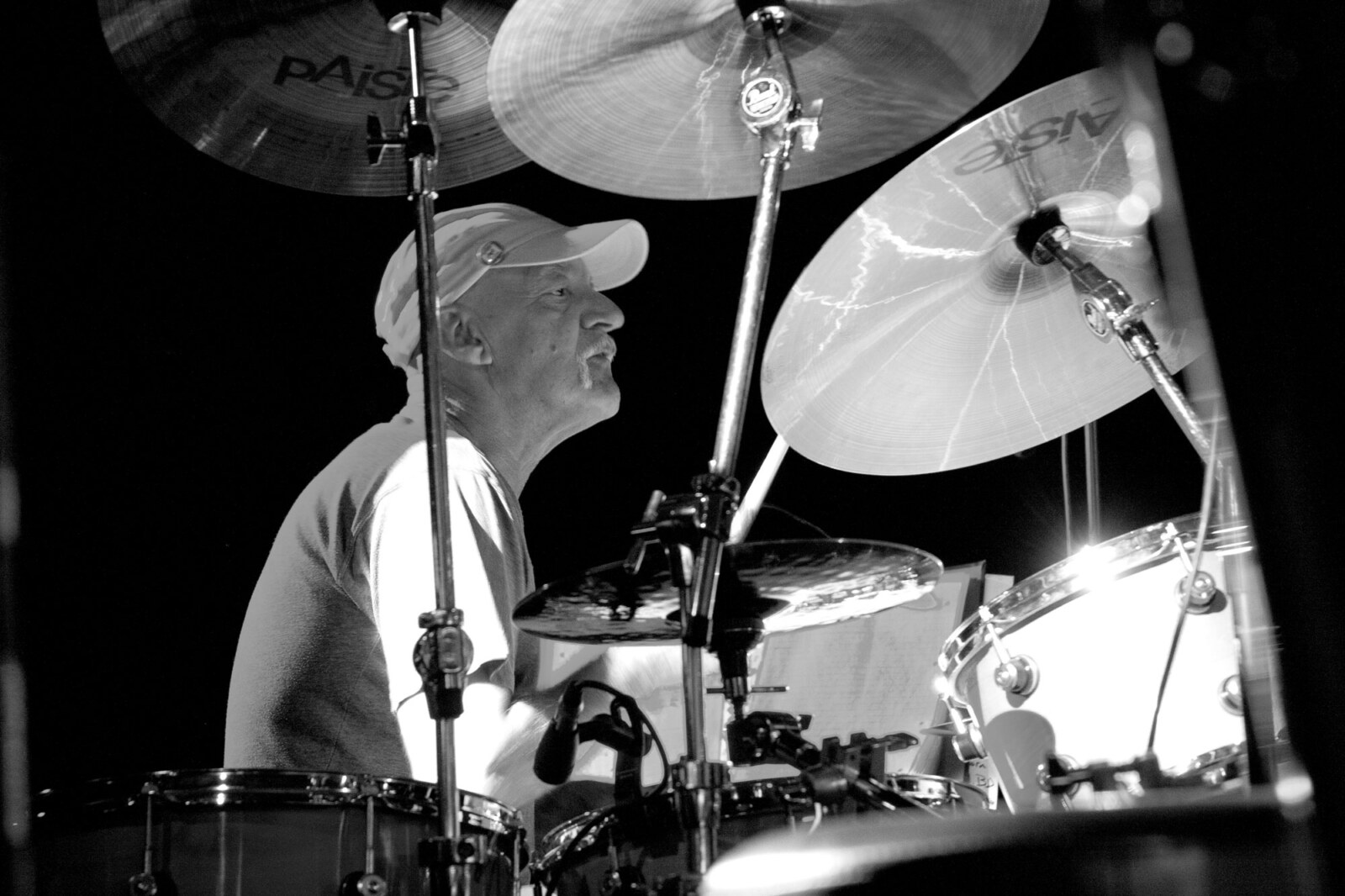
I read that you worked with Paul McCartney and Phil Collins and some other big names in rock and roll. Can you tell me a little bit about your experience with those two in particular?
Well, they’re great. They’re great people. It’s sort of well-documented. The talent is undisputed. And I can verify that they are two extremely talented individuals. And I was in awe of them and quite rightly. And it’s an experience that is irreplaceable, unrepeatable. I’m so happy that I had that chance to do it. And Paul McCartney, the Beatles were my heroes when I was a teenager, as they were most people’s. And so to work with one of them was incredible. And I met the others. But to actually be in a working environment was just incredible.
And what was it? Was it a live appearance or…?
No. It was doing sort of demos for the ‘Flowers in the Dirt’ album. But some of the recordings I did were released in Japan and I’ve been told that they’re going to be released worldwide at some point. Yeah, they’re sort of quirky things. But that’s nice.
Were you surprised at all when Jethro Tull won the Grammy for Best Hard Rock/Heavy Metal Band in, I think it was ’89?
Yeah. Well, I was because we’re just happy with the nomination and the record company wouldn’t send us to it. They just said, “Don’t go to the ceremony. You’re not going to win.” So it was a sad thing that weren’t there. People didn’t like that we weren’t there and they presumed we didn’t care. But in retrospect I do care. And I wish I had been there and I would have loved the experience and all the pomp and circumstance. But I’m proud of it. I think we deserved it. And that if I’ll ever get another one, who knows. No, but yeah. I’m very proud of it.
Right. Yeah. That was for ‘The Crest of the Knave’ CD, or record.
Yeah.
I just wanted to mention to you one thing, which is that I, I wasn’t sure whether to pronounce the word flautist or flutist, so I looked it up. And what I saw was that it says, “According to Bryan Garner, Flautist is the predominant spelling in British England because British writers changed ‘flutists’ to form a distinctly British spelling of the word. And then it goes on to say it would thus be more accurate to say that the British progressive rock band Jethro Tull features a flautist rather than a flutist.
Barre: Yeah. Yeah, flautist is the right word, but it’s like a lot of words, they get–bastardized is the word– and they just get changed in language, so in America words change, the words change, and then in England, American words change. So we have to sort of, you know, the language flies around the planet and gets adapted according to who’s speaking. In my world they’re both correct. Flutist is logical because you play a flute. Saxophonist, you play a saxophone. Guitarist, you play guitar. Flute. (Laughs) It’s a flutist. It’s just sort of…whatever.
Either/or is acceptable.
Yeah.
You’re scheduled to play Tucson, where I am, Tucson, Arizona, in May. So that’s like six months from now. Yeah, it’s up in the air.
Do you know something I don’t know?
No. I sure don’t.
No. Me neither. We’ll play the gig, but I don’t know when it will be. But we will play it. It just gets pushed back and pushed back again. It might not. There’s nobody on the planet who knows. No politician, scientist, or musician knows.
Right. Maybe you’ll be allowed to tour. Maybe there will be a vaccine, but it’s hard to imagine that it won’t at least affect the attendance, you know?
Well, yeah, exactly. Exactly. So, you know, there’s a lot of variables in there that they might allow the concert than the bands have to want to do it and accept the risk. Then the audience have to accept the risk. So then, at the end of the day, whatever happens is that it’s down to personal risk. What are you prepared to do and prepared not to do?
Right. Thank you again for taking the time. You’ve got a new album called ‘MLB: 50 Years of Jethro Tull’. Thank you.
(Laughs) I look forward to seeing you some time.
Actually, I did want to see if you wanted to let people know where they can pick it up.
Go to my website and it’s got all the information: MartinBarre.com. I don’t know. (Laughs) The website does.
Well, thanks so much.
Barre: OK, nice to meet you.
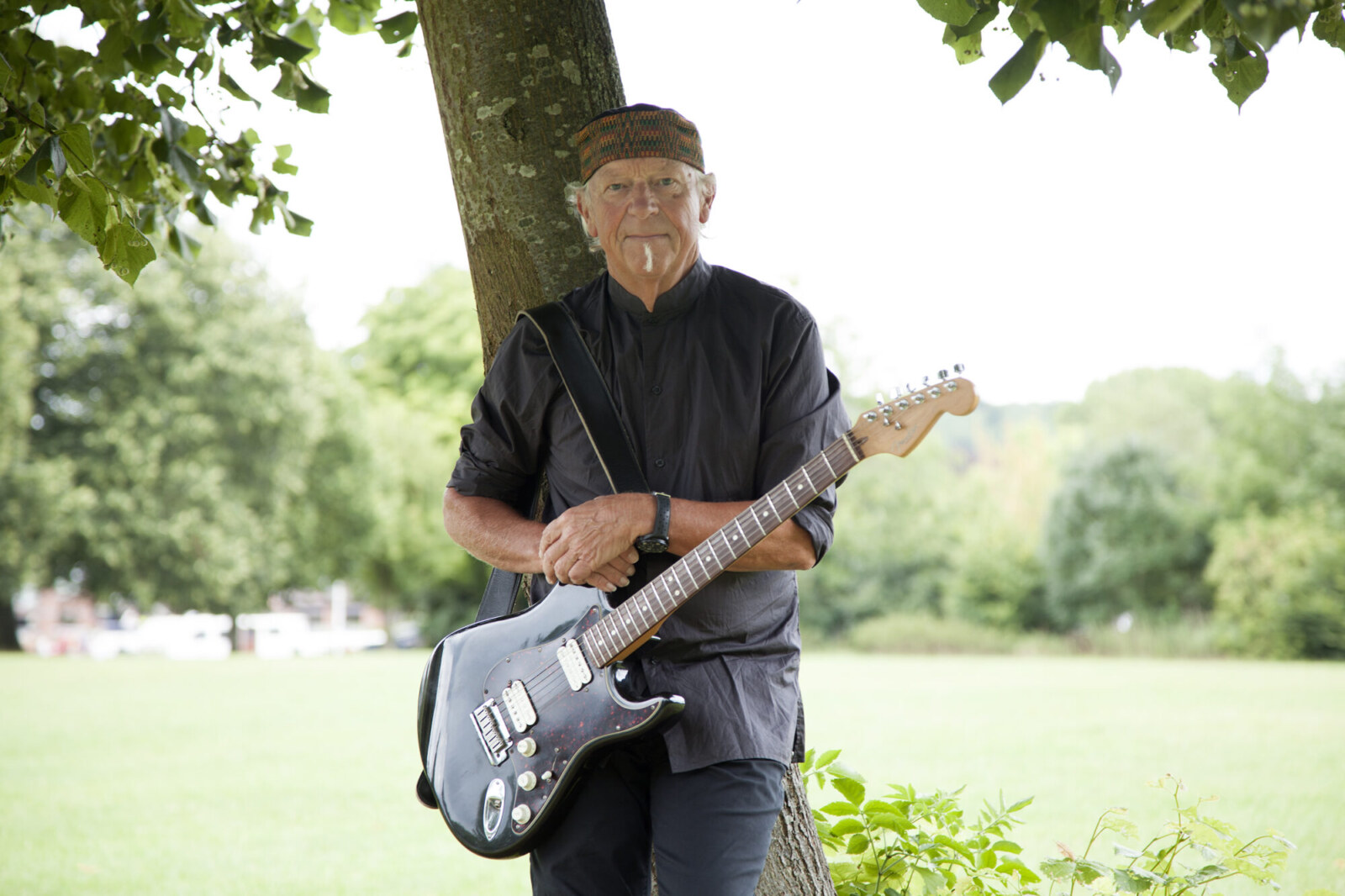
Nice to meet you too. Take care.
Jason LeValley
Martin Barre Official Website

